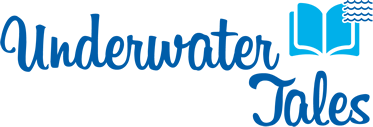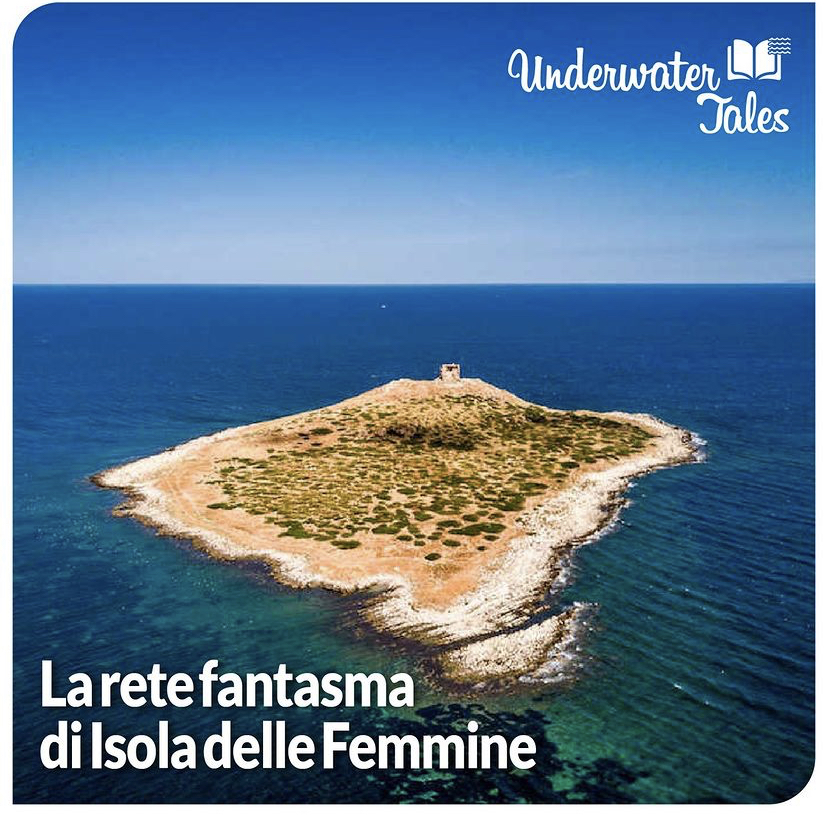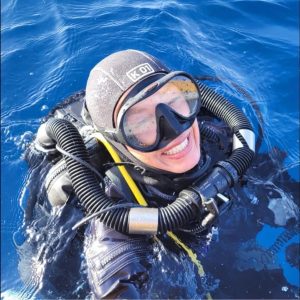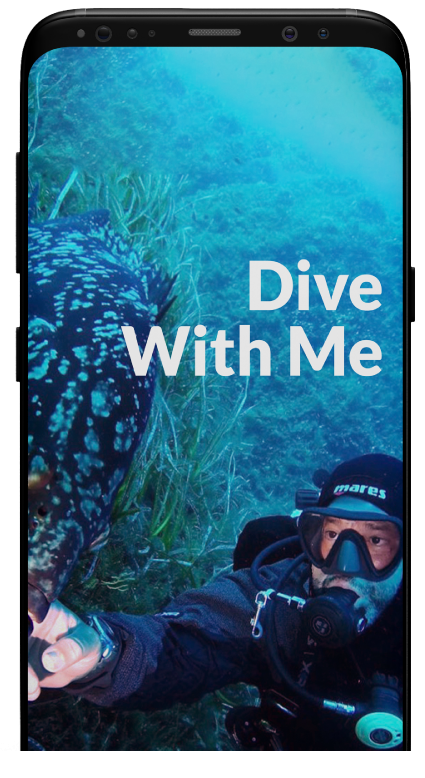The social contract between man and the sea was born in Sicily, thanks to a consortium. CO.GE.PA is a wonderful example of integration between companies, organizations and people who live thanks to the sea. And who have decided to respect it.
CO.GE. P.A. -CASTELLAMMARE DEL GOLFO AND PALERMO OVEST- is a consortium of direction, coordination and management between coastal, local, artisanal and close fishing companies of Castellammare del Golfo and Palermo Ovest.
He was the promoter and implementer of various Local Management Plans introduced with the European programming implemented through the European Fisheries Fund 2007-2013 and the European Fund for Maritime Affairs and Fisheries 2004/2020.
The top management of Co.Ge.P.A.
At the top of the Co.Ge.P.A are the President, Mr. Salvatore Lucido and the Head of the Technical-Scientific Committee Dr. Marco Toccaceli. Who, strengthened by their respective professional experiences, have been able to carry on this project until its realization despite the numerous administrative, social and environmental obstacles encountered along the way. Together they gave rise to Co.Ge.P.a, the social contract between man and the sea.
President
Captain Toti Lucido was born in 1964 and is an islander in all respects. Belonging to one of the oldest families of Isola delle Femmine (Pa), he was Deck Officer. And in the good tradition of the inhabitants of Isola, he has explored all the seas of the world for a few years. At the local political level, he was Councilor of the Municipality and was part of the Board of Directors of the Capo Gallo-Isola delle Femmine Marine Protected Area.
Since 2011 he has been President of the Co.Ge.P.A. and it is undoubtedly the historical memory of Palermo fishing of the last 50 years.
From the various collaborations with the biology faculty of Palermo, the meeting with Dr. Toccaceli took place from which the aforementioned Local Management Plan will arise.

The head of the Technical-Scientific Committee
Marco Toccaceli, holder of a PhD in Marine Biology and Marine Environmental Sciences, is the Managing Senior Partner of the “C.R.E.A. – Cooperative for Ecological and Environmental Research “. It is a cooperative company, founded in Palermo in 1986. With the aim of collecting, in an autonomous work organization, the professional experiences gained by marine biologists at national and foreign universities in the field of scientific research applied to the management and enhancement of natural resources and environmental analysis.
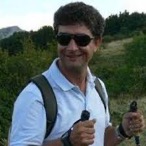
C.R.E.A. Cooperative for Ecological and Environmental Research
The areas in which C.R.E.A intervenes are numerous. Among other things, they concern: the sampling, analysis and study of waters, plankton, microorganisms, fish and invertebrate fauna, Phytobenthos and Zoobenthos. As well as the creation of databases (biological and chemical-physical parameters of the waters, problems related to coastal fishing), of the geomorphology of the seabed and of integrated management plans of coastal and maritime areas.
The C.R.E.A., registered in the National Research Registry of the Ministry of Public Education, has hosted for years, thanks to an agreement with the University of Palermo, undergraduate students of graduate courses in Environmental Sciences, Management of Marine Resources and Marine Biology. For the execution of training internships and 1st and 2nd level degree theses.
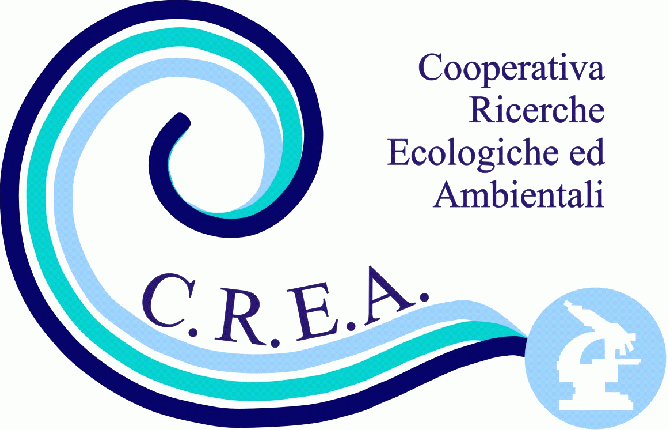
The birth of CO.GE.PA
In a first program (FEP 2007-2013) the so-called Measure 3.1 – “Collective actions”. Which led to the creation of some PdGLs in the Sicilian coastal territory. On this occasion the “CO.GE.PA. CASTELLAMMARE DEL GOLFO AND WEST PALERMO“.
Subsequently, the Mediterranean Fisheries Department of the Sicilian Region, within the framework of Regulation (EU) no. 508/2014 “Innovations in the fishing sector”, promoted the updating of a PdGL, following the expression of interest of the same Co.Ge.P.A. With the aim of contributing, in a sustainable way, to a better management and conservation of fish resources. Through the management and control of the conditions of access to fishing areas.
The PdGL Local management plan of the management unit of West Palermo and Ustica Island
The PdGL “Local management plan for the management unit of West Palermo and Ustica Island” was therefore implemented. This was followed by a three-year monitoring of the measures included in it.
The PdGL, currently in force, was approved by the Fisheries Department of the Sicilian Region (DDG 178/2012). Subsequently adopted by the Ministry of Agricultural, Food and Forestry Policies (D.D. 2/2012). And it became operational with two Ordinances of the Port Authority of Palermo (n. 22/13 and n. 51/13).
The drafting of a gestione plan such a complex had to first of all take into account the fact that the area of interest insists on coastal artisanal production contexts. Characterized by the multi-specificity of the resources, the seasonality and the diversification of the catching equipment.
These circumstances have made it very difficult to adopt management strategies associated with the introduction of property rights on catches, that is, of fish quotas. However, it was possible to establish management rules shared by the actors of the system. So that they themselves can give life to an exploitation organization capable of better protecting resources and increasing the income that derives from them.
Corporate Governance
While reading the documentation provided to me, I glimpsed that the development of this project is intended for the biological, social and economic sustainability of the area in question. The achievement of which rests on the attribution of a “management power” in favor of the same actors in the system and their future generations. It recalls the economic-entrepreneurial concept called “Corporate Governance” which I would like to focus on briefly.
In fact, every company, whatever its size or the sector in which it operates, has a set of rules, processes and systems at the basis of its operation.
The goal of it is the proper management of the organization. Therefore an efficient application of the so-called “Corporate Governance“, a term that is very often indicated with the English translation of “Corporate Governance”.
It is a fairly complex concept that depicts the system through which companies are managed and controlled. An idea that takes on a certain abstract connotation. But that finds as many practical implications in daily life both in business management and, if you think about it, in managing your family!
In short, “Corporate Governance” is a basic organizational system for each reality, through which a group of people is managed, directed and controlled.
In fact, we are talking about the set of tools, rules and systems that belong to an entity, both public and private. And that its purpose is correct management as well as efficient organization.
It is based on a pyramidal structure but based on equity and the balance of the forces involved. Affecting the decisions of the company and aimed at achieving objectives, defining the methods.
The main objective is above all to facilitate effective and prudent management of the company. In order to ensure its long-term success.
But the main and fundamental feature of this system is to ensure transparency and accountability within the structures involved. Working for the benefit of all concerned in compliance with accepted ethical standards and formal laws.
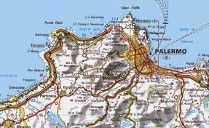
Equal treatment
Consequently, all shareholders must be treated fairly. That is, each party must comply with its obligations through a predefined code of conduct and transparent company policies. All this will make it possible to minimize conflicts of interest between the main players, namely the shareholders (shareholders), the board of directors and the company management (management). Which generally arise when the parties involved have opposite opinions on how the business should be conducted!
In any case, we must be confident in the fruitful and aware comparison of the practical needs of all components. Especially when the goal aims at environmental sustainability and consequently also human sustainability.
The mission of CO.GE.PA
Therefore, the mission of the “CO.GE.PA. CASTELLAMMARE DEL GOLFO AND PALERMO OVEST“, which resides in the exercise of a right of territorial use, finds substance in the adoption of local management plans. Articulated in technical and managerial measures as well as in the identification of social and economic support measures permitted by the regulations in force. Here the social contract between man and the sea is born.
These plans are of particular interest as they depict sea regulatory plans. As well as development models integrated with the operational and professional realities of a given territory.
In fact, by enhancing the specific characteristics of the area, the land use plans complete the process of modernization of the fishing sector. By focusing on safeguarding employment and income levels and environmental sustainability.
It therefore appears undisputed that the management system proposed in the PdGL prepared by the Co.Ge.P.A. “Castellammare del Golfo and Palermo Ovest” found its foundation in the institutionalization of a privileged dialogue. Between the public administrative management authority, the research organizations and the consortium promoting the same and, it is not difficult to imagine, the immense work done to implement it!
The most important intervention
Among the appropriate interventions, the most important is to find ways to enforce existing laws. In particular, compliance with minimum catch sizes and the non-use of illegal fishing methods.
In order to achieve these objectives, two types of interventions have been envisaged. Greater control by the competent authorities and greater awareness and involvement of all types of fishermen on environmental problems.
The involvement of the seafarers
In fact, the methods of approach were implemented through, first of all, the involvement of at least 70% of the marineries adhering to the Plan. And by way of example but not exhaustive, some of the most relevant measures taken can be mentioned:
– Preliminary and operational meetings between exponents of the maritime industries interested in the PdGL and scientific research operators, for the dissemination of the measures, the creation of the Governance Body, the identification of problems and management proposals;
– Document collection (licenses, CP lists, scientific and technical bibliography, thematic maps, existing legislation, etc.) and organization of data in G.I.S. (Geographical Information System);
– Identification and choice of biological and socio-economic indicators suitable for ex-ante and ex-post evaluation;
– Review of contents and management proposals with scientific research and with the marine industry;
– Approval of the PdGL by the Board of Directors of the Co.Ge.P.A. and the Governance Body and finally presentation of the Local Management Plan to the Fisheries Department of the Sicilian Region.
A model of “co-management”
The distribution of skills and responsibilities determined according to the objectives and internal and external factors existing in the area, configures a “co-management” model. Between the administrative authority, the managing authority, the local community and each operator of the system concerned. An essential “Shared Management” combined with the transfer of skills, and therefore also of rights, from the public authority to local communities.
We note that the management model adopted, studied in detail in order to achieve greater socio-economic-environmental protection, is very similar to the “Corporate Governance” business management model mentioned above. And together with the famous social contract between man and the sea.
Compared to the previous PdGL (2012-2015), the new plan contains additional and supplementary measures related to the experience already underway as well as the arising of new environmental needs:
- Return fishing activity to the “Biological Limit Reference Points“. In other words, medium / long-term sustainability through the regulation of access methods and fishing times within the 12-mile range.
- Monitor fishing activities aimed at acquiring useful management elements. For the enhancement, protection and optimization of sampling with a view to sustainable and responsible fishing.
- Sensitize all categories with interests in the fishing industry to the principles of co-management. In order to improve the income capacity of fishing enterprises.
- Within the limits of financial resources and legal provisions, the payment of the minimum monetary amount is envisaged. Guaranteed to sailors on board, through the activation of the Redundancy Fund (CIG). As well as a fee for companies as a contribution for the maintenance of boats.
- Regulate and enhance the fishing activities traditionally conducted in the area. Also in light of the new opportunities offered by the EU.
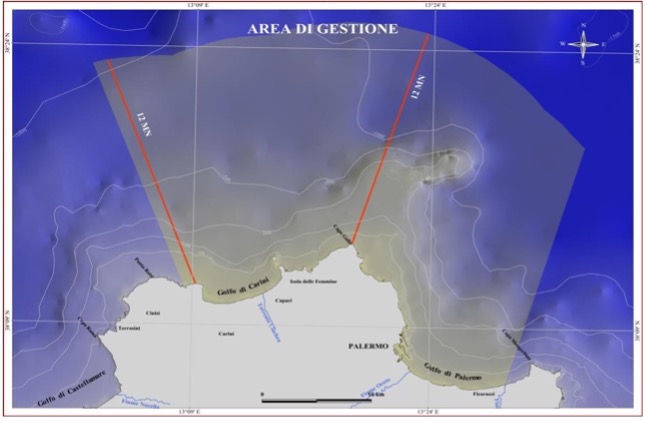
The problem of trawling
®Trawling is prohibited within the 100m bathymetry and on the seagrass meadows. In any case, this type of fishing must observe a weekly rest (Saturday and Sunday), on holidays and without recovery due to bad weather.
Trawler fishermen complain about the strong presence of bulky and polluting waste on the seabed, which hinders the activities and very often spoils the product.
In fact, a progressive decrease in the number and size of catches and, furthermore, an excessive cost of fuel has been reported.
® Lampuga fishing with the help of “cannizzi”
It is a fishing method traditionally used in Sicily. Exercised offshore on deep waters with purse seines, without closure and aimed at catching pelagic fish. Like dolphin fish, pilot fish and amberjack. Fishing with “cannizzi”, very important economically for artisanal fishing, presents some problems. They are those related to the increasingly precocious start of the activity, to the obstruction to navigation, to the conflict with fishing and the resulting longlines and the abandonment of equipment at sea at the end of the season.
Management identifies specific areas on which to anchor the “cannizzi”. And their number, position and implementation will be programmed.
The obligation to recover the moorings of the “cannizzi” as well as the use of biodegradable lines has been established. In order to minimize the impact that the severed tops and the loss of floats could have on the seabed and on the environment.
®Recreational and amateur fishing
There is the increasingly expanding problem of the illegal use of fishing resources by operators hiding under the guise of “amateurs”. At the time, the following were proposed: the introduction of the fishing license and identification systems for recreational and amateur fishing vessels, the total prohibition of the resulting and fixed longline for recreational and amateur fishing. As well as the limitation to Saturdays and Sundays and holidays. And a ban on recreational and amateur trolling fishing was established in August and September. To protect the juveniles of amberjack and bluefin tuna.
A special intervention
In reality, the project of the CO.GE.PA. he did not stop to list problems related to fishing on the Palermo coast and the damage caused to the environment. Suitable solutions and measures have been proposed in order to address the problems highlighted and then concretely implemented.
Among them, I would like to talk to you about an intervention, which is particularly close to my heart, which took place in October 2021, in the waters of Isola delle Femmine (Pa). An intervention that I believe to be particularly relevant and very significant in relation to the very “ratio” of the CO.GE.PA. That is to involve all the active forces of a territory in achieving a common and profitable goal for all.
In fact, the CO.GE.PA, funded by the Regional Fisheries Department, provided for the collection and disposal of marine litter. As well as for the removal of abandoned fishing gear from the seabed.
The intent is to protect and restore biodiversity and marine ecosystems. In that, any professional activity is destined to generate waste assigned for disposal in compliance with the regulations in force. Therefore, the consortium involved all available sector operators, fishermen in the first place, towards a sustainable fishing activity.
Thematic Objective 6 (Italy 2014-2020 Partnership Agreement for the use of European Structural and Investment Funds) supports investments aimed at “preserving and protecting the environment and promoting the efficient use of resources”. Therefore, actions concerning the safeguarding of marine biodiversity have been defined. By restoring degraded areas due to the waste present on the seabed, and more particularly, actions aimed at reducing the phenomenon of so-called “Ghost nets”.
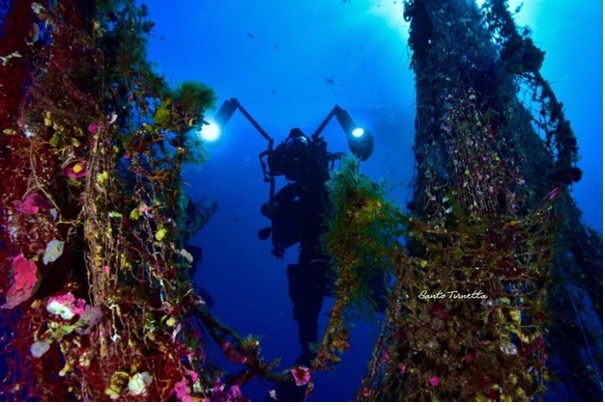
The ghost nets
Unfortunately, the situation on our seabed is worse than on our beaches. There is a 2009 report, produced by FAO (UN Food and Agriculture Organization) and UNEP (UN Environment Program). It is said that every year around the world between 640,000 and 800,000 tons of fishing gear (nets, ropes, traps, floats, leads, stockings for mussel farming) are lost.
The damage caused is limited to pollution. Once abandoned, these equipment become real traps that occupy the seabed. Or that, dragged by the currents, continue to imprison and fish, endangering marine fauna and flora. Each year, about 100,000 marine mammals and 10 times more for seabirds die from being trapped in ghost fishing nets or ingesting their fragments.
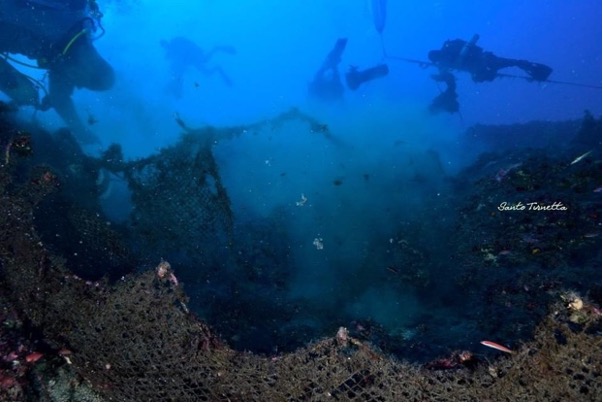
October 2021
Well, during the month of October 2021, a massive recovery operation took place on the north coast of Sicily involving fishermen, environmental associations, diving experts and marine biologists.
With the authorization of the Port Authority of Palermo n.07 / 2021, the activities for the identification of fishing gear and nets present in the seabed of the Marine Protected Area of Capo Gallo-Isola delle Femmine have been started. And the subsequent recovery of the same, with the help of the divers of the Progetto Mare association of Palermo. The C.R.E.A., a company specializing in research in marine biology, and various local fishing units belonging to the CO.GE.PA.
In order to issue the aforementioned authorization, the promoting body had to justify strict safety requirements. In relation to the patents of participating divers, the fishing boats involved and the protection of the natural and cultural heritage of the Marine Protected Area.
In addition, the CO.GE.PA also had to request the Territory and d Ambiente of Palermo the authorization to place 1 roll-off and n. 3 containers. To be used for the removal and collection of recovered waste, on the dock of the port of Isola delle Femmine.
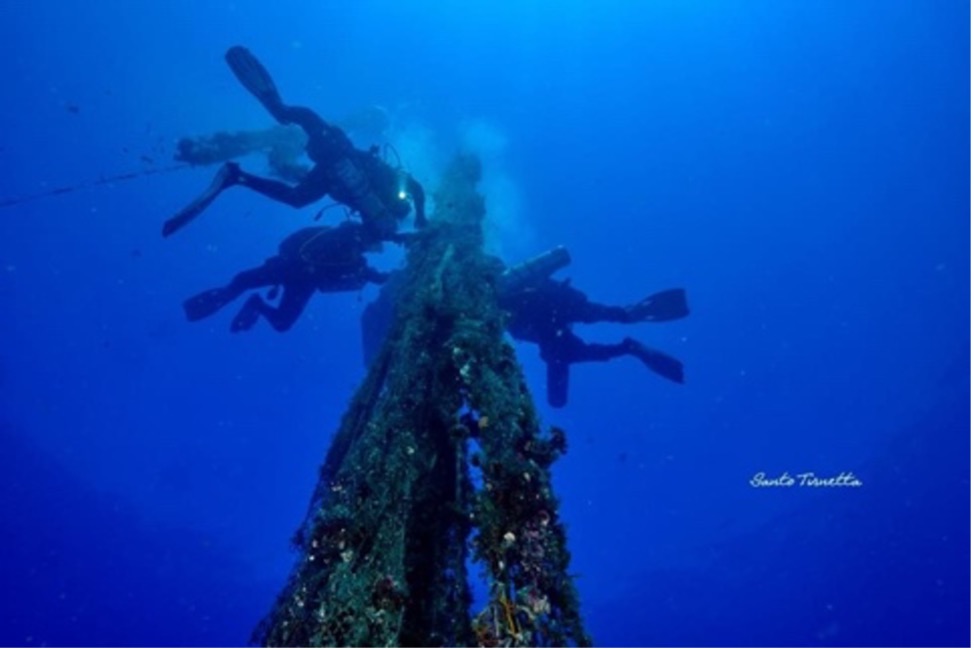
These recoveries have been very challenging both for the size of the recovered nets and for their nature. The biologists present performed an accurate assessment of the concretionary organisms on the network. The sessile species (fixed to the net) protected and of great ecological value, have been freed from the meshes, removed from the anthropic substrate.
On Friday 4 March I will introduce you to the two protagonists of this enterprise. Stay tuned!!
